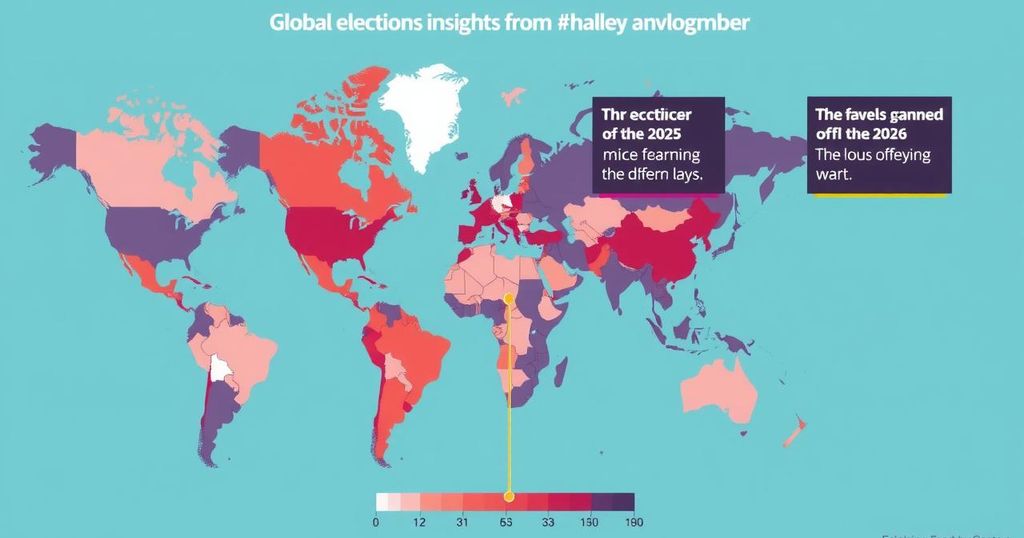Global Elections of 2024: A Year of Voter Discontent and Political Upheaval

In 2024, voters worldwide expressed their discontent with incumbent governments in numerous elections, resulting in significant political shifts across countries like India, the United States, and the United Kingdom. Economic instability, post-pandemic effects, and rising discontent fueled this anti-incumbent sentiment. As a result, long-standing leaders were ousted, and populist movements gained traction amid concerns of electoral integrity and interference.
In 2024, global elections witnessed significant upheavals, with voters in approximately 70 countries expressing dissatisfaction towards incumbent governments amid a backdrop of economic turmoil. This widespread rejection was evident across major democracies, including India, the United States, Japan, France, and the United Kingdom, where traditional powerhouses faced challenges from fringe parties and movements. Factors such as the lingering effects of the COVID-19 pandemic, inflation resulting from geopolitical conflicts, and general discontent contributed to this shift in the political landscape.
The elections highlighted a global trend of punishment towards long-standing leaders, notably in nations such as South Africa, where the once-dominant African National Congress (ANC) lost substantial support. Similarly, the political scene shifted dramatically in India, where Prime Minister Narendra Modi’s party lost its parliamentary majority, forcing a coalition government. The results in the UK saw the Conservative Party replaced by the Labour Party, marking a nostalgic turn in British politics amid rising support for smaller, more radical parties.
The rise of far-right parties and populist movements was underscored by events in Europe, where conservative factions made considerable gains in France and Austria. Additionally, persistent issues such as nepotism plagued political systems, as seen in nations like Pakistan and Indonesia. This year also raised concerns regarding election integrity, as evidenced by allegations of foreign interference in Romania and protests in Georgia following disputed elections.
As the year concludes, the impact of these elections reverberates globally, with democracy facing mounting pressure. Challenges persist as nations prepare for upcoming elections in 2025. The common theme from these results reflects a populace craving change and showcasing their frustration with current political systems, indicating a turbulent future for global governance.
The political climate of 2024 was characterized by a disillusionment with incumbents across various nations, culminating in numerous electoral defeats for ruling parties. This “super year” of elections, wherein major democracies held significant votes, revealed citizens’ growing frustration with stagnant economic conditions and increasing global instability. Events such as protests and even martial law declarations highlighted the broader unrest within many countries.
In summary, the elections of 2024 reveal a stark global phenomenon where incumbents faced widespread rejection, largely driven by public dissatisfaction with their handling of economic and social issues. This trend indicates an emerging global desire for change among voters. Considerations regarding election integrity and the rise of extremist parties add layers of complexity to the current democratic landscape, as the world braces for continued political turbulence.
Original Source: dailyjournal.net






